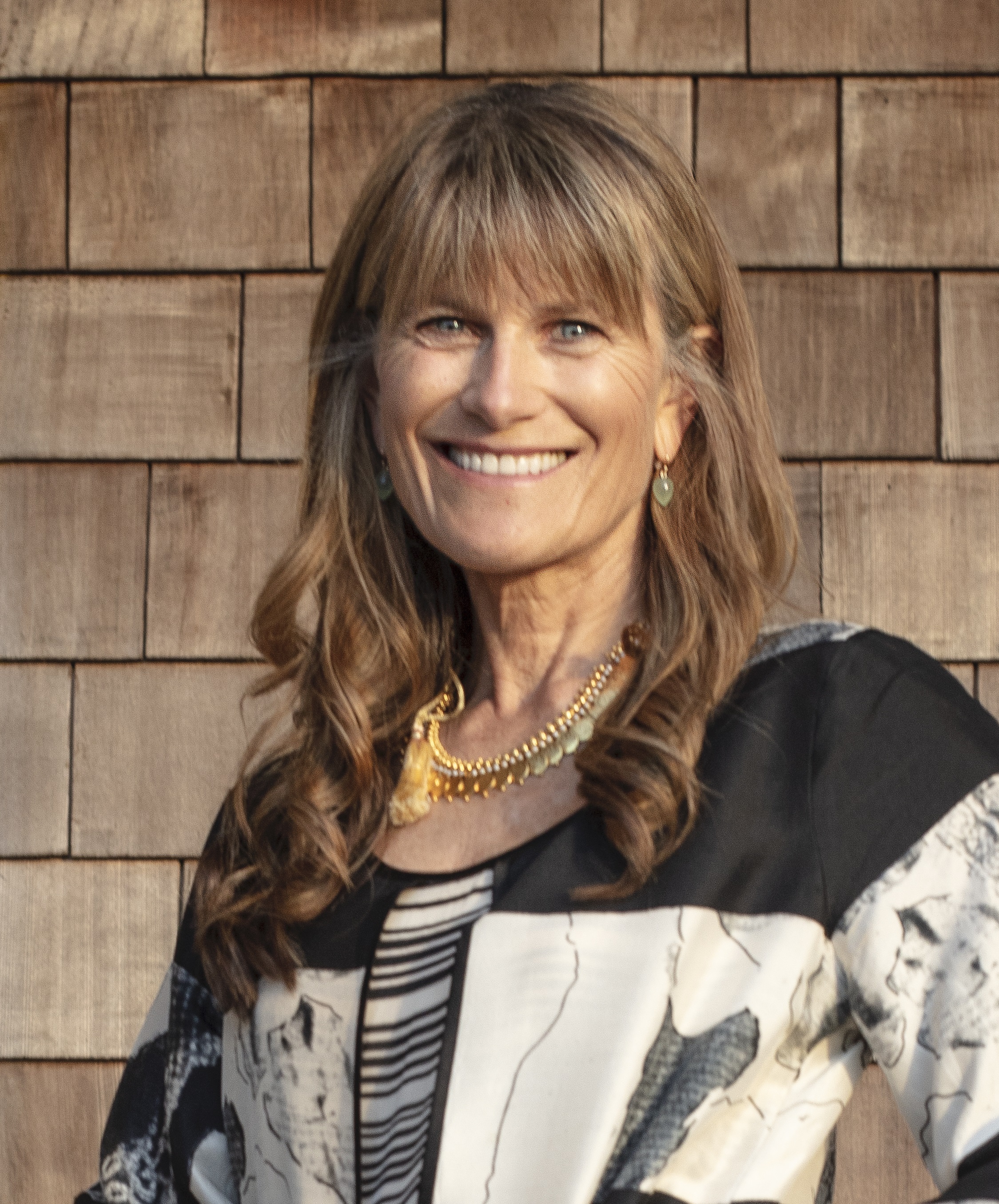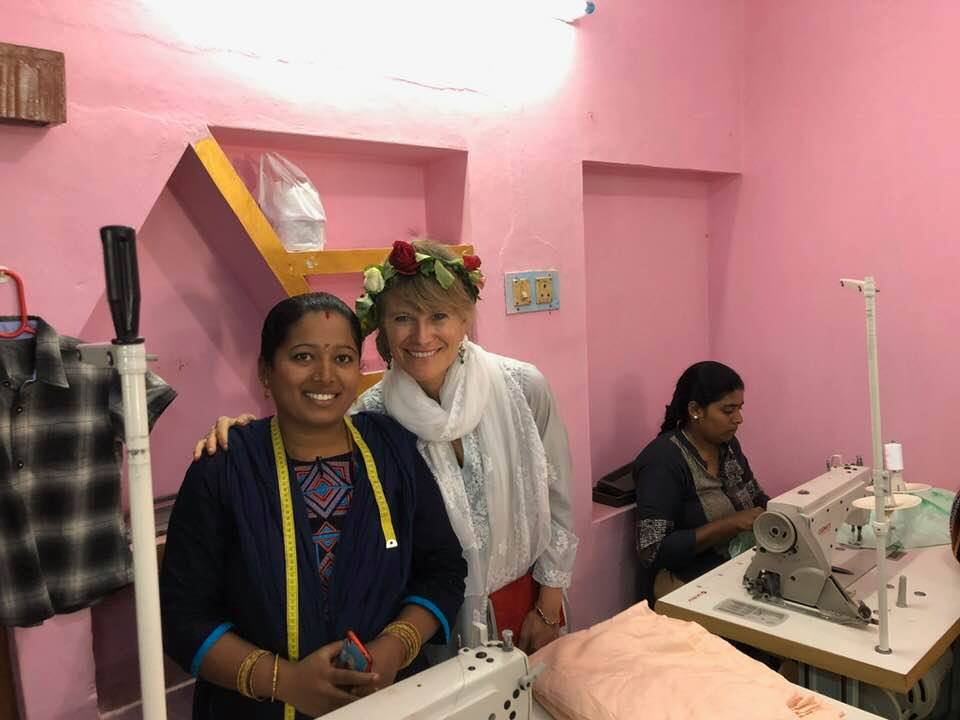Earlier this year, I embarked on a 14-day trip across India to see Acumen’s work with our new Country Director, Mahesh Yagnaraman. Acumen invests philanthropic capital into companies solving the problems of the poverty around the world. And in our 17-year history, this is the first time I’ve gone on such a journey, specifically one that allowed a compressed view of our investments made over the last decade.
We first invested in India in 2006, and today we are seeing the real meaning of patient capital and the power of moral leadership in changing the status quo. We have invested more than $30 million in 32 game-changing companies and impacted more than 10 million lives. We have also supported the work and growth of 72 Acumen Fellows, who are on their way to becoming moral leaders the world needs right now.
By the end of the journey, Mahesh and I found ourselves profoundly inspired by the great spirit, capability, and impact of Acumen’s entrepreneurs and Fellows in all the far-reaching areas of the country.
MUMBAI
First we visited a tribal area where smallholder farmers produce pure honey for investee Under the Mango Tree, an agricultural company founded by a remarkable women entrepreneur Vijaya Mastela. Through a system of cooperatives, Under the Mango Tree provides more than 4,000 marginal farmers with market access, significantly raising their incomes and improving their quality of life.
The farmers clearly love the bees. And they do a huge service—not only by providing honey to nearly 900 stores in India’s largest cities, but also by increasing crop yields dramatically.
BANGALORE
In Bangalore, we visited LabourNet, a workforce development company that has trained nearly 600,000 low-income people. Young people ages 18-25 working as construction workers, beauticians, and other trade-based laborers go through a six-month course and six-month apprenticeship. LabourNet improves their skills and income and gives a sense of agency and possibility as well.
Many LabourNet trainees dream of starting their own businesses. Mohammed, here, started his own motorbike repair and cleaning shop. He sees dozens of cars daily, has already hired more employees, and is expanding to new locations. LabourNet has helped entrepreneurs start 7,000 small businesses across India.
Shilpa, another LabourNet trainee, started her own tailoring business. She now employs 10 people full time. LabourNet provides the tools needed to release the entrepreneurial all around India – this is the power of an idea, patient capital, and strong moral leadership.
In another part of Bangalore, we visited Orb Energy, an investee since 2011. The company provides rooftop solar for low-income households and small enterprises like hospitals. Orb’s customers have reduced their energy costs by 50% and divested from oil by switching to solar.
Orb Energy now manufactures solar panels right in Bangalore, where 50% of their employees are women. Founder Damian Miller spoke of the importance of patient capital and long-term trust in his success. He is a living example of the enduring commitment and determination it takes to change systems.
NAGALAND
From Bangalore we traveled northeast to Nagaland, a beautiful state wearied by 50 years of conflict but brimming with incredible potential. We were welcomed with the deep generosity and warmth of the Naga people, including the Acumen Fellows who hosted us. It was an honor to see this place through the eyes of people young and old who are trying to create change.
Indeed the great level of human capability in Nagaland was thrilling. It reminded me again that our abilities are evenly distributed, but our opportunities and freedoms are not. This is why building for dignity is the critical work of this generation. The Fellows and their teams see a better future and are willing to do what it takes to build it.
KANPUR
We then traveled to Kanpur where Acumen Fellow Ankit Agarwal is solving a critical problem. In India, people bring beautiful flowers to temples on a daily basis. These flowers are then thrown into the Ganges River—along with the harmful toxins that cover them. The chemicals pollute the Ganges and other sacred bodies of water and cause water-borne diseases. Ankit’s company, HelpUsGreen, uses a circular economy model to rid the rivers of such pollution.
HelpUsGreen’s employees collect the temple flowers and transform them into incense sticks and compost. The employees, all women, hail from the manual scavenger community, marginalized and excluded from most opportunities to change their lives. And yet here they are offered agency, dignity, change. If we only looked at the problems around us and saw them as opportunities to make change, more of us would find meaning and purpose in our fast-paced world.
DELHI
In Delhi we visited Fellow Gayatri Jolly (right), a designer producing high-end yet sustainable Indian fashion. Gayatri hires women tailors from low-income communities, many of whom have lived very difficult lives. She teaches them the trade in order to become master tailors, or “Master G’s,” a rubric typically assigned only to men. The MasterG curriculum is rooted in practicality, freedom and innovation.
The Master G’s are taught to innovate and think freely, and with adequate discipline to cope in the real world. The impact thus has been not only in the workshop but in the rest of their lives as well. This is what it means to see dignity as the opposite of poverty. This is what it means to define success not just as the amount of money or fame we earn but by the amount of human energy we set free.
In another part of Delhi, we visited Vikalp, an experiential learning company providing educational alternatives to low-income children who too often lack critical thinking and decision-making skills. They focus on teaching math through visuals and interactive models like tabs made from dried peas in case small children “eat the props,” which isn’t out of the question.
Already, Vikalp has seen impressive growth and major improvements in children’s testing levels. Parents say that, for the first time, their children want to count fruits at the market or do calculations with their vegetables at dinner. The principal at the school we visited says his students know how to think. Children are resilient, powerful and want to learn. As a society we must do everything possible not to let them down.
HYDERABAD
From Delhi, we traveled south to Hyderabad to visit a service center of WaterHealth International (WHI), the first distributed water company to serve low-income customers in India.
WHI’s distributed units sell water in 20-liter jerrycans and their customers buy one every few days. The company serves over 7 milion people daily and has plans to expand exponentially. WHI has taught us how private sector efficiency and government partnership are needed to bring a critical resource like water to all.
Outside of Hyderabad, we visited Kaushik K and Sathya Raghu, who met in the Acumen Fellows program and created Kheyti. The company sells “greenhouses in a box,” which require only 1/16 of an acre yet double the food production of a smallholder within a single season.
The greenhouses are a resiliency strategy to fight climate change, protecting crops from too much heat, too little water and pests. Sathya and Kaushik are focused on doubling sales and keeping their orientation on those who have been always left out of the economy. And the veggies taste awesome!
On our final stop, we visited LifeSpring Hospitals, a company Acumen helped start in 2008. We believed then, and ever more now, that low-income women in India need an alternative to both the unaffordable private and often substandard public healthcare systems. LifeSpring models what it means to treat low-income women as valued customers rather than passive recipients of aid.
LifeSpring now operates 12 hospitals and has provided safe, dignified delivery to more than 50,000 mothers. Over more than a decade, LifeSpring has perfected the healthcare delivery system which, combined with solid government infrastructure could ultimately change the system of how we think about quality affordable healthcare not just to a few, but to all women.
To learn more about my trip to India, read more here.


